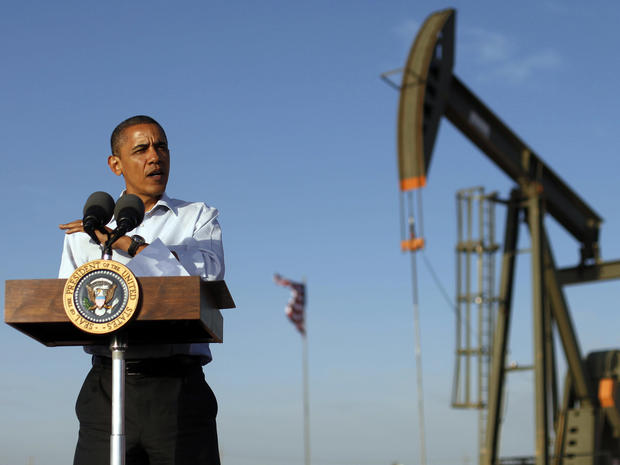Obama tightens oil sanctions on Iran
President Obama announced Friday that it is moving forward with additional sanctions on Iranian oil exports in an effort to "significantly reduce" the amount of Iranian oil in the global market. This is the administration's latest attempt to pressure the country to abandon alleged attempts to develop a nuclear bomb, which the Iranian government disputes.
The sanctions, meant to further isolate Iran's central bank, pressure two dozen countries who import Iranian crude to stop dealing with Iran's central bank or risk being cut off from the U.S. economy.
The administration's move activates a June 28 deadline for countries to either comply or ask for a waiver. The State Department announced last week that at least eleven countries have obtained a waiver, including Japan and ten nations from the European Union because of a "strong commitment" to reduce Iranian oil imports, according to a senior administration official.
However, China, India and South Korea are not on board with the administration's decision and has given no indication they will comply or obtain a waiver by dramatically reducing Iranian crude imports. The administration official said the president will continue discussions with the international community to "build the broadest coalition as we can to apply pressure on the Iranian government." Suzanne Maloney, senior fellow at the Saban Center for Middle East Policy, said there is "nothing permanent" about the administration's move and that a series of factors, including the economy, the election and the status of the U.S. relationship with Iran, could alter the administration's course.
"I think the administration is walking a fine line between ratcheting up pressure on Iran and ensuring it does not inadvertently contribute to the escalation of oil prices," Maloney said.
